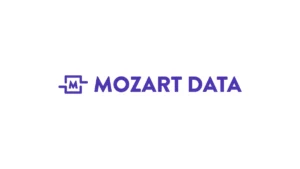Almost every startup wants to be data-driven, but it can be difficult to decide where to start. Startups wonder if they’re ready for data infrastructure and if they are, what their next steps should be.
Should they seek out tools to solve specific problems? For example, if the most pressing data question involves marketing campaigns, marketing-oriented solutions will have some obvious appeal. But, those tools aren’t intended to grow with a company as more teams encounter data needs. Sooner or later there are problems they can’t help solve.
A data warehouse is a foundational data piece that can set the entire organization on a path towards becoming data-driven, making better decisions, and ultimately, growth. If you find yourself pondering data questions, we recommend a Snowflake data warehouse.
What is a data warehouse and why is it useful?
A data warehouse is functionally a cloud database that allows you to store information from all of your different sources in one place, then work with it there. This allows you to query data from multiple sources and combine it for analysis, clean up your data, and even give access to one source of truth to anyone on your team you’d like to work with data.
If you aren’t familiar with data tooling, this might sound too complicated, or like overkill for your business. Can’t a business intelligence tool help you analyze your data?
Here’s a hypothetical — let’s say a SaaS company wants to analyze their user behavior? It might be simple enough to figure out something like the average amount of actions a user takes per day in the platform. But what if that company wants to know if emails from their product marketing team to their customers are driving feature adoption? Perhaps looking at correlations between the timing of communications and spikes (or the lack thereof) in feature usage can give the team a pretty good idea of what’s going on. It might take some laborious work in spreadsheets, but it could be possible.
But what if that company now wants to see if behaviors are different for new customers, if customers at large companies behave differently than those at smaller companies, or if different marketing campaigns sourced customers that are using more of the platform? And if any of the above are true, are there implications for long term revenue? This type of analysis simply isn’t possible if data is siloed in multiple sources and can only be combined via copying and pasting from CSVs. With a data warehouse, this SaaS company can not just perform complicated analysis that impacts the bottom line, they can set it up once and automate it to run whenever they need to access this information.
Now imagine all of the unique questions your business wants to answer that require pulling information from more than one source. The opportunities are nearly endless when a data warehouse is in place to help. In a hyper-competitive environment, especially when the economy is shaky, data can be the difference between failure and success.
Why is a Snowflake warehouse the best for startups?
We’ve written posts going into the details on why we believe Snowflake is superior to AWS Redshift and Google BigQuery, as well as a more in-depth look from our CTO on why Mozart specifically likes working with Snowflake. But, we’ll give you the rundown again:
- Snowflake is easier to use — The Snowflake team has put a lot of thought into their features. It can automatically define indices based on how users query data, supports semi-structured data, isn’t tied to just one cloud platform, integrates with every BI tool, and supports SQL, a popular and accessible query language.
- It’s very secure — Snowflake provides best-in-class security standards, including end-to-end encryption of data in transit, and has high levels of industry data security compliance, like Soc 2 Type 2.
- It’s easy to control costs with Snowflake — While it’s true that other data warehouse providers are working to make their costs more transparent, Snowflake has clear pricing and features in place to make it much easier to control your costs. Some data warehouses allow users to waste enormous amounts of money if they write and run inefficient queries. Snowflake gives users control of compute resources for each job, meaning it’s more difficult to spend money accidentally.
A robust solution that saves users time and helps them control their costs is (obviously) very valuable for startups. While other solutions can also provide strong capabilities, we believe Snowflake is the clear best-in-class tool.
Setting up a Snowflake data warehouse with Mozart Data
We have to admit something— part of our modern data platform offering is a managed Snowflake data warehouse.
Mozart Data provides the fastest way to set up a Snowflake data warehouse — and the rest of the data tooling you’ll need to make the most of it. We can help you move data from your siloed sources to your Snowflake warehouse, better organize and manipulate the data there so it’s reliable, and start analyzing and visualizing your data for data-driven operations and decisions.
Snowflake is an amazing tool, but without Mozart you’ll likely need someone with data infrastructure experience to make the most of your Snowflake data warehouse. We not only set up your warehouse (and win awards for implementation), we can manage administrative tasks so your warehouse is optimized for your needs, without costing your team unnecessary resources.

If you’d like to learn more, please explore our blog or get in touch here.

